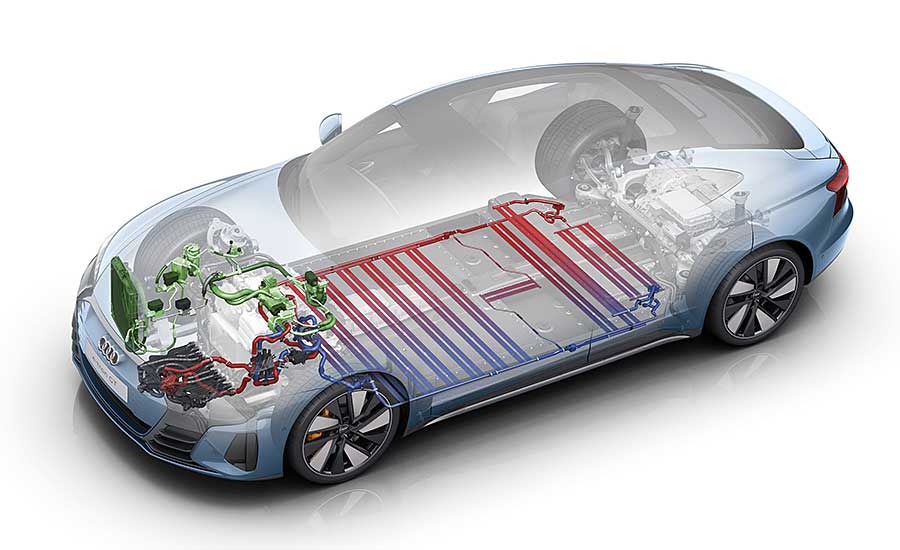As the automotive industry transitions towards electric vehicles (EV), one of the critical aspects under scrutiny is the performance and longevity of electric vehicle batteries. Among the various factors influencing battery life, temperature management plays a pivotal role.
This has led to significant investments in the development of advanced battery cooling and heating systems.
As electric vehicles (EVs) continue to gain popularity, advancements in battery cooling and heating systems are becoming crucial. These innovations promise to enhance battery efficiency, longevity, and overall performance. But are these new systems worth the investment? This article explores the benefits and potential drawbacks of the latest EV battery technologies.
In this article, we will delve into the innovations in EV battery temperature management, their impact on battery performance, and whether these investments are justified.
I. Importance of Battery Temperature Management in EVs
A. Temperature’s Effect on Battery Life
- Extreme temperatures, whether hot or cold, can accelerate the degradation of battery cells.
- High temperatures can lead to capacity loss and reduced lifespan, while cold temperatures can hinder charging efficiency and power output.
B. Consistency in Performance
- Maintaining an optimal temperature range ensures consistent and reliable performance of the battery over its lifespan.
- Proper temperature management can enhance driving range and overall efficiency.
II. Traditional Battery Cooling and Heating Systems
A. Air Cooling Systems
- Commonly used in many early-generation EVs.
- Utilizes air circulation to dissipate heat generated during charging and discharging.
B. Liquid Cooling Systems
- More advanced and efficient than air cooling.
- Circulates a specialized coolant through channels near the battery cells to regulate temperature.
III. Innovations in Battery Temperature Management

A. Active Thermal Management Systems
- Utilizes a combination of liquid cooling and heating elements.
- Employs sensors and sophisticated control systems to maintain optimal temperature levels.
B. Phase Change Materials (PCMs)
- Introduces materials that can absorb or release heat at specific temperatures.
- Enhances temperature stability and reduces reliance on active cooling or heating.
C. Solid-State Batteries
- Inherently more resistant to extreme temperatures compared to liquid electrolyte batteries.
- Offer potential improvements in temperature tolerance and longevity.
IV. Impact on Battery Performance and Longevity on Electric Vehicle
A. Extended Battery Life
- Effective temperature management can significantly prolong the lifespan of EV batteries.
- Studies show that well-maintained batteries exhibit reduced degradation rates over time.
B. Improved Charging Efficiency
- Properly cooled batteries can accept higher charge rates without overheating.
- Enhanced charging efficiency leads to shorter charging times and increased convenience for EV owners.
C. Enhanced Safety
- Maintaining optimal temperatures reduces the risk of thermal runaway events, which can lead to safety hazards.
- Safety measures such as thermal monitoring and emergency cooling protocols are more effective with advanced temperature management systems.
V. Economic Considerations
A. Initial Cost vs. Long-Term Savings
- While vehicles equipped with advanced thermal management systems may have higher initial costs, the long-term savings from extended battery life and improved efficiency can outweigh the investment.
B. Resale Value and Consumer Perception
- Vehicles with robust temperature management systems may retain higher resale values due to the perceived reliability and longevity of the battery.
- Consumers are increasingly aware of the importance of temperature management in EVs, influencing purchasing decisions.

VI. Environmental Impact
A. Sustainability and Reduced Waste
- Prolonging the life of EV batteries through effective temperature management contributes to sustainability efforts.
- Reducing the frequency of battery replacements minimizes waste and resource consumption.
Conclusion
Innovations in EV battery cooling and heating systems represent a crucial step towards maximizing the potential of electric vehicle technology. The benefits of extended battery life, improved charging efficiency, enhanced safety, and long-term economic savings make these investments well worth considering.
As the EV market continues to grow, advancements in battery temperature management will play a pivotal role in shaping the future of sustainable transportation.
